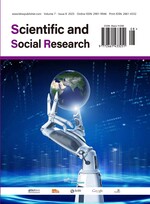Abstract
There lies a paradox in self-deceit, where one acts as the deceiver, knowing the facts, but at the same time, as the deceived, not knowing it. Psychoanalysis avoids the paradox through the unconscious mechanisms; Existentialists, however, by declining the unconscious, avoid the paradox because, in order to cover the truth, one surely knows it. The article, by testifying that the deceiver’s self and the deceived’s self are one and the same, uncovers self-deceit in Rousseau’s sincere confession because he separates the agent-self and the confessor-self, while both are the same self. The article further explores self-deceit as a pretense based on Austin’s philosophy. The pretense cannot be seen, but can be detected through understanding its context. The article concludes that psychology should understand the paradox of self-deceiver as a way of self-integrity within a hermeneutic insight.
References
Aesop, 2025, The Fox and the Grapes, in Aesop’s Fables, edited by Tony Payne, 2008. Accessed July 5, 2025, https://teach.files.bbci.co.uk/schoolradio/08_fox_and_grapes.pdf
Chen JY, 2022, Perception, Rational Knowledge, and Self-Knowledge. Beijing Daily Press, 2022, Beijing, 250.
Liu C, 2019, Understanding Self-deception. Yunnan University Journal (Social Sciences Edition), 18(2): 5–18.
Jean-Paul S, 1956, Bad Faith, in Being and Nothingness: A Phenomenological Essay on Ontology, translated by Hazel E. Barnes. Washington Square Press, Washington, DC, 90–97. https://ia801504.us.archive.org/14/items/in.ernet.dli.2015.69160/2015.69160.Jean-paul-Sartre-Being-And-Nothingness.pdf
Jean-Paul S, 1956, “Bad Faith.” Being and Nothingness: A Phenomenological Essay on Ontology, translated by Hazel E. Barnes. Washington Square Press, Washington, DC, 87–88. https://ia801504.us.archive.org/14/items/in.ernet.dli.2015.69160/2015.69160.Jean-paul-Sartre-Being-And-Nothingness.pdf
Bernard W, 1981, Moral Luck, in Philosophical Papers 1973–1980. Cambridge University Press, Cambridge, 20–39. https://bibliotecamathom.wordpress.com/wp-content/uploads/2012/10/williams_-_moral_luck.pdf
Jean-Paul S, 2007, Existentialism Is a Humanism, translated by Carol Macomber. Yale University Press, New Haven, 20–31. Accessed July 4, 2025, https://nnty.fun/downloads/books/pantopia_library/files/Jean%20Paul%20Sartre%20-%20Existentialism%20Is%20a%20Humanism.pdf
Byung-Chul H, 2015, “Vita Activa”, “The Pedagogy of Seeing”, and “Burnout Society”, in The Burnout Society, translated by Erik Butler. Stanford University Press, Stanford, 24 + 36–37 + 47. https://ia800109.us.archive.org/30/items/byung-chul-han-the-burnout-society-2015-stanford-briefs-libgen.lc/Byung-Chul%20Han%20-%20The%20Burnout%20Society%20%282015%2C%20Stanford%20Briefs%29%20-%20libgen.lc.pdf
Hannah A, 1990, The Social Question, in On Revolution. Penguin Books, New York, 95–97. https://monoskop.org/images/b/bf/Arendt_Hannah_On_Revolution_1990.pdf
Jean-Jacques R, 1963, The Confessions. Random House, New York, 3. https://dn720001.ca.archive.org/0/items/confessionsofjea0000unse_q5k5/confessionsofjea0000unse_q5k5.pdf
Chen JY, 2022, Perception, Rational Knowledge, and Self-Knowledge. Beijing Daily Press, Beijing, 210 + 258.
Austin JL, Anscombe GEM, 1958, Symposium: Pretending. Proceedings of the Aristotelian Society, Supplementary Volumes 32 (November 1958), 261–294. https://doi.org/10.5840/arist195832suppl2
Hoshi S, 2022, Bokko-chan (雪夜), Chinese edition translated by Hai Ming-Zhu. https://sghexport.shobserver.com/html/baijiahao/2022/05/29/755303.html
Chen JY, 2022, Perception, Rational Knowledge, and Self-Knowledge. Beijing Daily Press, Beijing, 261–265.
Liu C, 2019, Understanding Self-deception. Yunnan University Journal (Social Sciences Edition), 18(2): 5–18.
Winnicott DW, Living Creatively, in Home Is Where We Start From: Essays by a Psychoanalyst. W. W. Norton & Company, New York, 35–54 + 71–79. https://archive.org/details/homeiswherewesta00winn/page/n7/mode/2up
Chen JY, 2022, Perception, Rational Knowledge, and Self-Knowledge. Beijing Daily Press, Beijing, 251–255.
